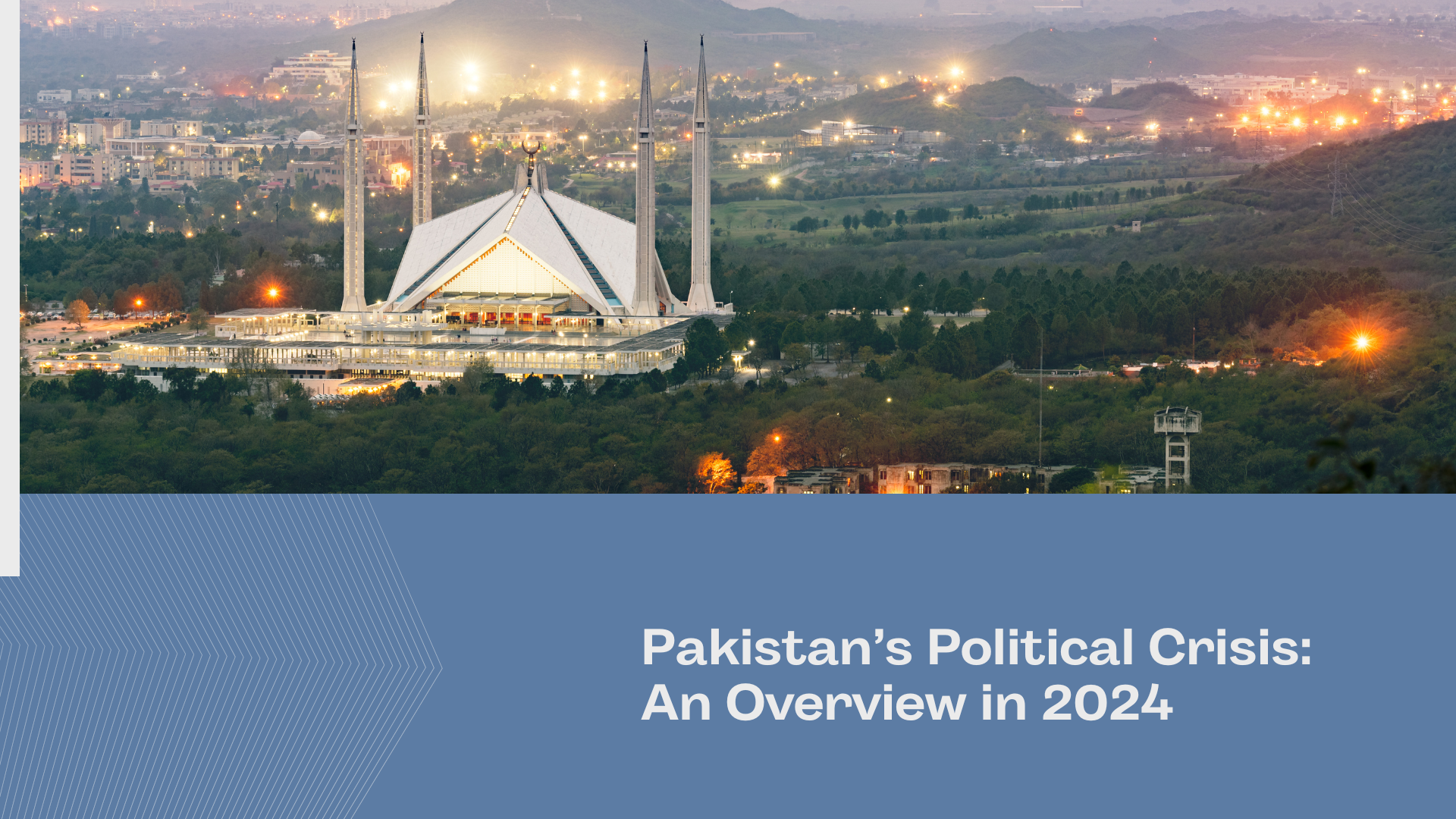Pakistan faces a complex political crisis involving clashes between the judiciary, the executive, and powerful military interests, culminating in a profound governance struggle. Here’s an in-depth look at the current scenario:
Background of the Political Crisis
In April 2022, Imran Khan, the then-Prime Minister, was ousted from office through a no-confidence vote in the National Assembly, making him the first Pakistani prime minister to be removed this way. Following his dismissal, he began to rally for immediate elections, accusing the new government, led by Prime Minister Shehbaz Sharif and the Pakistan Democratic Movement (PDM), of being an “imported” administration. However, the coalition government, supported by some 11 parties, was intent on completing its full term, leading to tensions over the timing of general elections.
The Role of Provincial Assemblies
In an attempt to pressure the federal government, Imran Khan dissolved the provincial assemblies in Punjab and Khyber Pakhtunkhwa in early 2023, calling for snap elections within 90 days as mandated by Pakistan’s Constitution. However, the PDM coalition was not prepared to hold elections in these regions, citing concerns over political stability. The federal government argued that holding separate elections would escalate political tensions and increase economic instability, pushing for a unified election date across the country instead.
The Supreme Court’s Involvement
The delay in elections led to the Supreme Court’s intervention. The Court, taking suo motu notice, ordered the Election Commission of Pakistan (ECP) to hold the Punjab elections by April 30, 2023. This date was later postponed to October 8 due to logistical issues, sparking further discord. The Supreme Court then ruled that the elections must be held by May 14, upholding the 90-day mandate. Despite this, the government referred the decision to the parliament, which, in defiance of the Court’s directive, refused to release the required funds.
The Court continued to push for elections by May 14, instructing the State Bank of Pakistan to release Rs 21 billion to the ECP for election expenses. Parliament and the federal government, however, have been reluctant to follow through on this order, leading to a standoff between the judiciary and executive branches of Pakistan’s government.
A Call for Political Dialogue
In April 2023, the Chief Justice of Pakistan called for political negotiations to find a middle ground, hoping to resolve the deadlock without further escalation. The Defense Ministry petitioned for elections to be held simultaneously across the country in October, citing security and economic concerns, but this request was dismissed. While the Supreme Court has repeatedly emphasized the constitutional mandate to hold provincial elections, the government has sought a compromise, trying to delay them until October.
Growing Tensions Between Government and Judiciary
The ruling coalition, which includes the PDM and military influences, appears unwilling to hold elections due to fears of a strong PTI comeback. Allegations against PTI leaders, including Imran Khan, have mounted, with accusations of instigating unrest. This tension between the executive, judiciary, and opposition has only intensified the political crisis, resulting in a growing divide.
On April 4, the Supreme Court reinforced its stance, demanding that provincial elections be held within 90 days, thereby upholding the Constitution. The decision was widely seen as a move to strengthen Pakistan’s democratic process, though the government’s hesitation to follow through has deepened the constitutional crisis.
Public and Civil Society Response
Civil rights groups and the legal community have expressed strong support for the Supreme Court’s rulings, insisting that elections must occur as scheduled. Public sentiment appears to favor the judiciary’s insistence on constitutional adherence, which the PDM government, backed by the military, seems to resist.
Imran Khan has indicated he will mobilize public protests if elections are further delayed, signaling the potential for civil unrest. PTI leaders have accused the ruling PML-N of using negotiation offers as mere diversions, asserting that no genuine outreach has occurred to resolve the electoral impasse.
The Role of Pakistan’s Military
Pakistan’s political landscape is complicated by the military’s significant influence. Many believe that the military’s backing of the PDM government is a central factor in the reluctance to hold elections. Despite the Supreme Court’s clear directives, there remains concern that the military’s role may be a significant factor in delaying elections, with fears that the country could revert to military rule if the crisis escalates.
The Path Forward: A Possible Resolution?
With the Supreme Court’s steadfast position on holding elections by May 14 and the government’s reluctance to follow suit, the country faces an uncertain path forward. An agreement between the judiciary, executive, and political leaders may be the only way to prevent further economic and political deterioration. The situation remains fluid, with time running out for a peaceful resolution. For many, the upcoming elections in Punjab could be a decisive factor in shaping Pakistan’s future stability.
Foundation
Pakistan stands at a pivotal crossroads, with its democratic foundation being tested by a combination of political infighting, military involvement, and economic pressures. The Supreme Court’s commitment to upholding the Constitution has gained public support, but the opposition between the judiciary and the government raises questions about the future of democracy in Pakistan. How this crisis unfolds will likely shape Pakistan’s political and economic landscape for years to come, with the May 14 elections seen as a litmus test for the country’s commitment to democratic principles.

